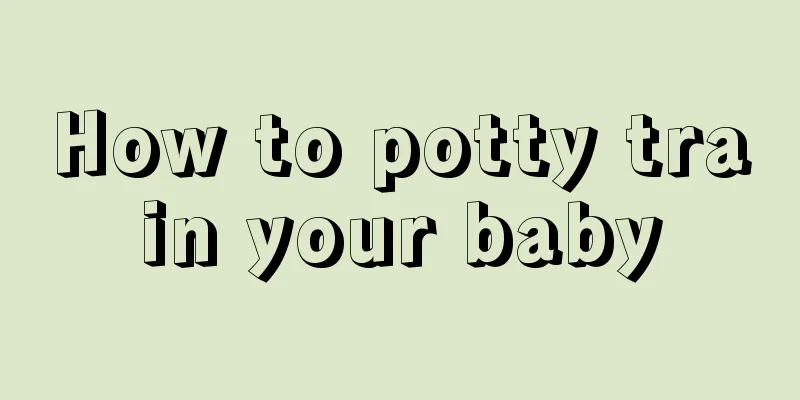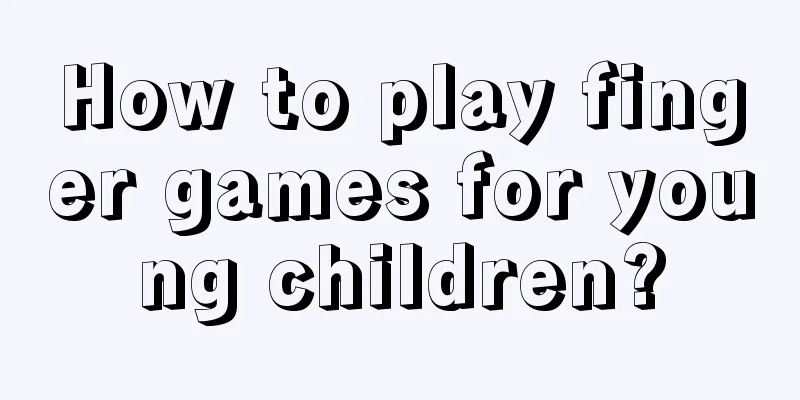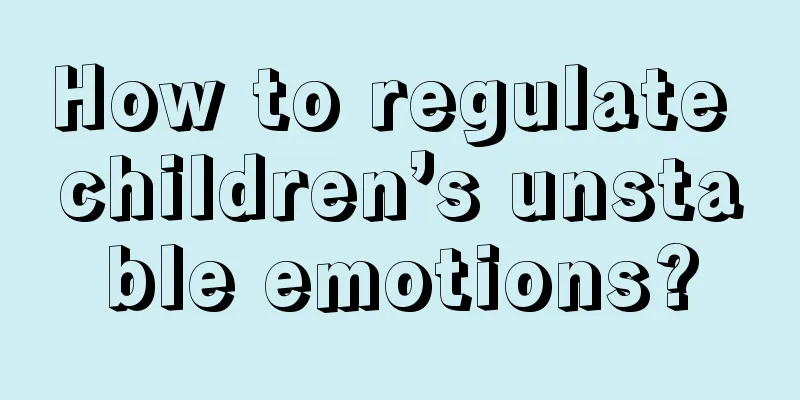How to potty train your baby

|
It is a very long process for a baby to grow up from birth. During this process, the baby begins to learn some things from adults. Many babies will deliberately imitate the behavior of adults when they see it. The baby cannot control his spinal nerves, so at first his bowel movements and urination are uncontrollable. The baby's bowel movement should be trained by the parents so that the baby knows what to do when it is time to defecate. Here we will teach you how to train your baby to bowel movement.
For newborn babies, defecation is usually a subconscious conditioned reflex. As long as the bladder is full and they feel the urge to defecate, they will defecate naturally. When the baby can understand what you say and walk by himself, his brain and nervous system have matured. He can also begin to feel a full bladder and rectum, and can control the urge to defecate. If the time interval between urination of the baby reaches 2-3 hours, and he can tell whether the diaper is wet or not, or when he wants to go to the toilet on his own initiative, the baby can be toilet trained. Generally, babies will have these reactions when they are 18-24 months old. In the West, the age range for babies suitable for toilet training is around 12 months to three years old. If your baby still needs diapers at 2 and a half or three years old, this is normal and mothers don't need to worry too much. In addition, careful mothers may find that babies sometimes stop doing things suddenly, or their facial expressions change instantly. Hehe, it is very likely that they are about to poop! If the baby has a sense of the foreshadowing of his own poop, it will be much easier. This not only requires timely encouragement from parents, but also requires a process.
▲To train your baby to urinate and defecate, you must first make sure your baby has an impression of the potty. At the beginning, let the baby think that this is a novel toy, let the baby sit on it with his clothes on, and let the baby feel that the potty is like a bench, so that he will like it. If your baby doesn't want to sit and play anymore, let him/her get up immediately. Don't let your baby feel like he/she is in prison when sitting on the potty. If you still can't sit still this week, try another week. ▲When your baby becomes interested in the potty, you can let him/her know the relationship between the potty and urination and defecation. You can let an older baby that your baby knows serve as an example, or you can tell your baby how your parents urinate and defecate, and explain it to him/her patiently. ▲When the baby accepts the connection between urination and defecation and the potty, let the baby try to use the toilet. Parents can find a time when the baby is most likely to urinate or defecate, take him (her) to the potty, and suggest that he (she) sit on it and try it. Do not force your baby to sit on the potty if he does not want to. He should stop after 3-5 minutes. Even if he does not defecate, do not scold him. ▲To train your baby to urinate and defecate, you must do it on his or her own accord. This is the only way to complete the training successfully and avoid incontinence in the future. Try it every day. If your baby doesn't poop in the potty for two weeks in a row, you should put it aside for a while and try again after a few weeks. If your baby starts to show active intentions, try two or three times a day.
Toilet training should be done slowly, step by step according to the baby's acceptance level, progress rate and shown interests and preferences. 1. Follow your baby’s mood Every baby has his or her own temperament and personality. When training, you must first judge whether he is in a good mood and when he is most cooperative. 2. Avoid when you feel unwell or your environment changes Never train your baby when he is sick or uncomfortable, and it is best not to train him when there are "major changes" in his life (such as moving, changing nannies, starting daycare, etc.). 3. Don’t force your baby He will not go to the toilet if he does not have the urge to urinate. Let him control the time to urinate by himself. Never put too much pressure on your baby, otherwise he will hold his urine and feces out of fear. 4. Give timely praise "Baby knows he is peeing, that's great!" In addition to being patient, parents should also give timely praise to enhance their baby's self-confidence. 5. Wear training pants When babies wear diapers, they will have the idea of "let them pee, it doesn't matter, I'll change them after they pee", which will make training them difficult. During the day, you can let your baby wear training pants. These training pants will feel slightly wet when the baby urinates, reminding the baby that the underwear is wet and needs to be changed, gradually cultivating the baby's awareness of going to the toilet. Moreover, it has a breathable waterproof layer that will not dirty the outer pants, saving the mother a lot of effort. Tips: If you don’t use training pants, ordinary underwear will also work, but there is a disadvantage, which is that the baby will feel very uncomfortable after getting wet, and the mother will have to change the baby’s clothes more often. |
<<: Ten month old baby has green stool
>>: Mucus and curds in baby's stool
Recommend
How is ADHD diagnosed in infants?
The phenomenon of infant ADHD is a problem that m...
What to do when children don't respect their parents
In today's society, the number of families wi...
What to do if your child has cavities in his teeth
Children all like to eat sweets, but they don’t p...
What are some warm-up exercises for children?
Young children are in the period of growth and de...
Why do young children walk on tiptoes?
After the baby is born, as the baby's age inc...
Can children eat before taking sugar pills?
When you go to the health center for a vaccinatio...
What to do if your child breaks his knee
Every child likes to play, and in the process of ...
What to do if your baby has thrush
Thrush is a relatively common skin disease. There...
Four-year-old baby has delayed language development
Language delay means that the ability to express ...
What to do if a 5-year-old child has cavities?
If children eat too much sugar during their growt...
Small pustules on the newborn's head
The skin of newborns is very delicate. Parents sh...
Does your child's hands and feet shake when he falls asleep?
As babies grow up, they will experience some disc...
What medicine is good for babies to take to fight viruses?
Viral infections can cause many diseases, the mos...
What to do if baby's hand is scalded and blistered
Babies are prone to many accidents because they s...
What is the best food for a 4-year-old child with constipation?
Constipation is unlikely to happen to children. T...









